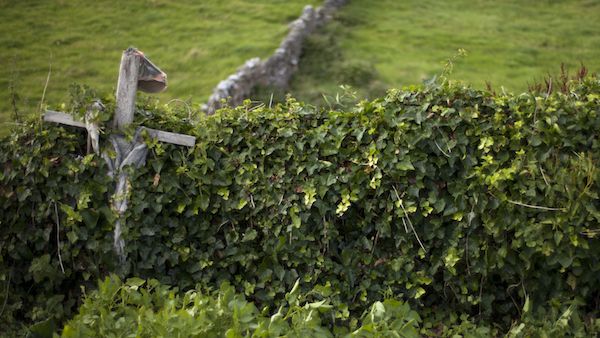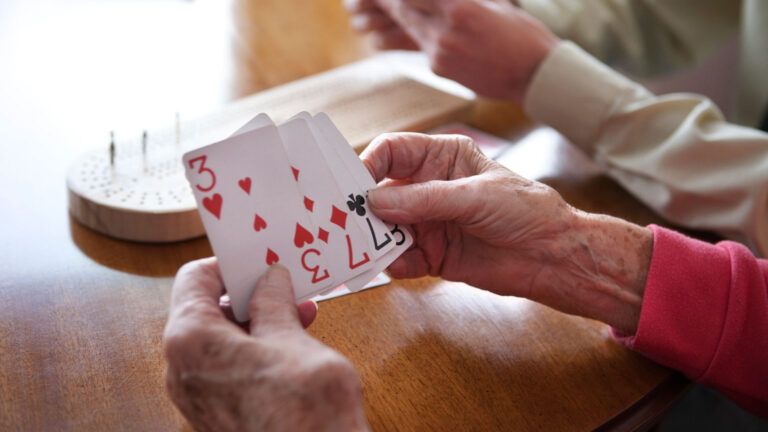Fear can paralyze or energize, as many of us are discovering in these extraordinary times we live in today. Fear—whether fueled by a virus, economic woes or something else—can either raise the hair on the back of your neck or put steel in your spine. The difference isn’t in the situation itself but in the faith we apply to the circumstances.
I learned this on a backpacking trip one summer 27 years ago with my 11-year-old son, Aaron, and 12-year-old daughter, Aubrey. I’d backpacked a few times before, but the longest hike the kids had done was maybe half an hour.
We drove five hours from our home in Butler County, Ohio, to Gatlinburg, Tennessee, arriving at the trailhead of the Great Smoky Mountains National Park around six that evening. For the first leg of our three-day trip, I’d picked the Forney Creek Trail.
A storm had passed through the area the night before, but the evening sky promised fair weather under a full moon. I expected us to hike less than two hours, leaving plenty of time to set up camp before dark.
The trail was a rocky creek bed. Dry for much of the season, it had been refreshed by the recent rain, something I hadn’t counted on. For the first hour, the worst thing was our wet feet. By hour two, the demanding downhill slope of the trail and the weight of the packs was really starting to wear the kids down. We rested for a few minutes, but we needed to push on to make the campsite before dark.
“We’ll be there soon,” I kept saying, but battling the tug of the water and the rocky terrain made for slow going. What have I gotten us into? Before we knew it, it was dark in that deep valley. We reached the thundering waters of Forney Creek only with the aid of our flashlights.
After three hours of hiking, the trail now seemed to end at the creek. I flashed the light up and down the opposite bank, but I couldn’t see where—or if—the trail resumed.
“I’m scared.” Aubrey’s voice trembled.
I knelt in front of her. “I know,” I said, determined not to let my kids see my own panic rising. “Our campsite should be just on the other side of the creek. I’m going to cross it to look around.”
“No!” Aaron said. “We want to go with you.” His sister joined in.
I figured I could navigate the 15 to 20 feet to the other bank by myself, but to do so with two children, in the dark, seemed too much to expect. But I couldn’t leave them alone either.
We dropped our packs, and I jammed a small flashlight atop one of them. “That will help us keep an eye on our packs. We just have to make sure we don’t lose sight of the light.”
The three of us formed a chain, with me in the middle, the water frothing and swirling beneath us. I watched Aaron slowly step from rock to rock ahead of me. What if he fell in and sprained his ankle? Was the current fast enough to pull him downstream? Finally Aaron hopped onto the bank and I helped Aubrey forward. We searched for the trail and campsite until we nearly lost sight of the tiny light on our pack on the opposite bank. No luck.
I kept a brave face for the kids, even pretending that it wasn’t a big deal to cross the creek again, but I couldn’t help feeling disappointed in myself. What kind of a dad was I?
When we reached the other side, I put my arms around both kids. “Okay, so we can’t find our campsite. But we know the way back.”
“All we have to do is follow the trail until we get to our car,” Aaron said.
“And we can sleep in the car,” Aubrey added, a note of hope in her voice.
Exhausted and now facing a three-hour hike up a mountain in the dark, they were looking at the bright side!
We began the laborious return trip. We took turns leading; it became the leader’s job to shine the light on rocks, roots and other obstacles. More than once we fell to our knees in a clump, one atop the other. We again navigated the washed-out portion of the trail, forced to take frequent breaks. Had there been any flat spot, we would’ve pitched our tent and spent the night.
We were still an hour from the car when I heard it: a deep, throaty growl from the bushes, not 10 feet away. My heart pounded, and adrenaline flooded my system. My brain screamed, Bear!
“Dad?” Aaron’s voice quivered.
I lowered the flashlight and pulled my kids close. We needed to pray, but it had to be a short prayer under the circumstances. “God, we need you. Be with us, and get us through this.” I felt all three of us calm. We inched past those bushes, alert for any sound or movement. None came.
It was after midnight when we reached the parking lot, six exhausting hours after we’d started. We were dirty and wet and sweaty, but we were safe. We checked into the first motel we found and ended the long day with a prayer of deep gratitude.
Despite our aching muscles and frayed nerves—that growl was still reverberating in my head—we hiked to Clingmans Dome the next day and camped beside a roaring creek under the stars. We enjoyed a crackling campfire and discussed what we’d learned about fear and faith during our six-hour hike the night before. I could not have been prouder of my children.
Looking back on what we learned on that perilous hike, I think many of those lessons could be applied to the challenges we all face in life, especially today. A few:
1. Face your fear. “I’m scared,” Aubrey had said. She was courageous, not cowardly, in confessing her fear. Admit your fear, but don’t dwell on it. Fear is a healthy reaction to danger.
2. Hold tight to what you know. We may have been just yards from the campsite when we turned around, but we didn’t know that. We did know, however, that the trail back up the mountain would lead us to our car and to safety. By grounding ourselves with what we knew, we tipped the odds in our favor. We protected ourselves.
3. Don’t blame others. I asked the kids, “Did you ever think, ‘This is all Dad’s fault—he got us into this mess’?” They seemed surprised. Aubrey said, “That wouldn’t have done any good.” She was right. Laying blame, especially in a crisis, is counterproductive.
4. Stick together. On the way down the mountain, we were often separated from each other by several yards, but on the return trip, we gripped the pack of the person ahead. We shared light, warnings, stories, songs, encouragement and hope with each other all the way back up that mountain. We were stronger and safer as a unit. Rely on the people closest to you, and let them rely on you.
5. Pray. I realized that, although I was praying inwardly the whole time, I was still operating in a self-reliant way, rather than relying on God. It took a threatening growl in the dark to get me to throw myself on God. Once I prayed, the prayer pointed us outside of ourselves. I don’t want to be self-reliant in a crisis; I want to be God-reliant—and prayer is my greatest tool.
These hard-won lessons of that long-ago summer night in the Great Smoky Mountains guide me still, especially in the face of a sometimes uncertain future. Faith fights fear, and God is always near.
For more inspiring stories, subscribe to Guideposts magazine.







